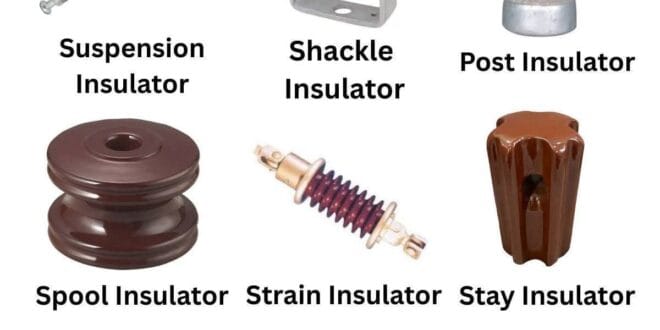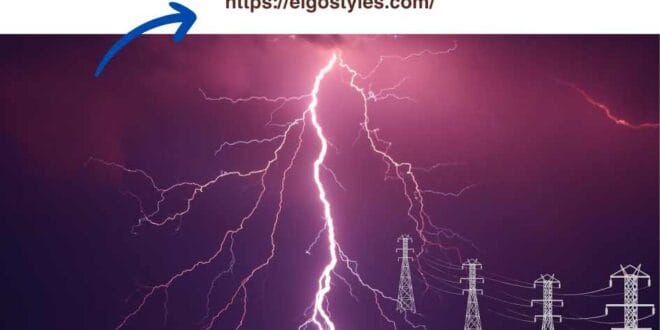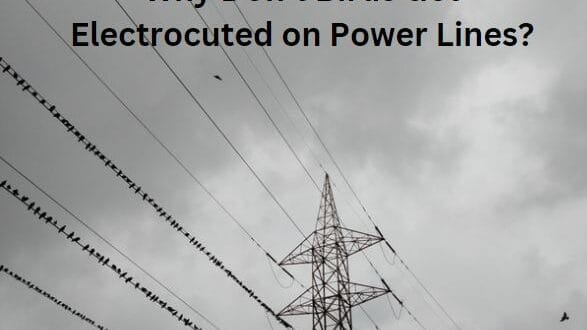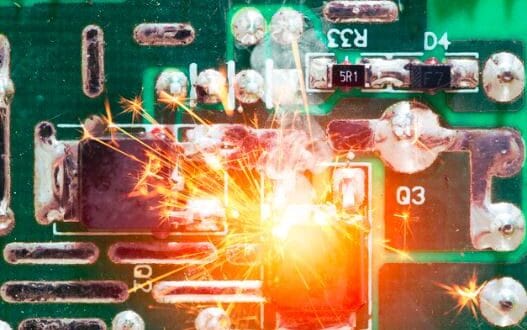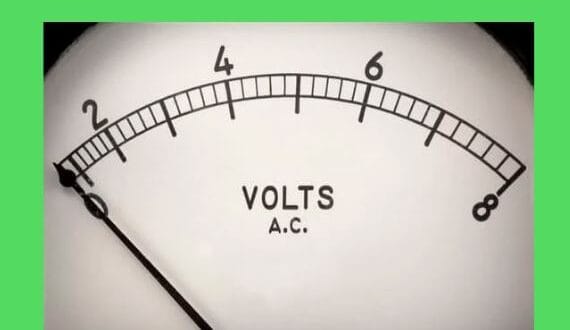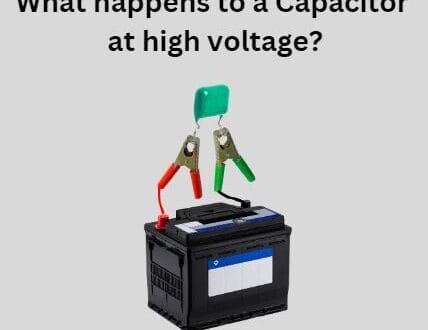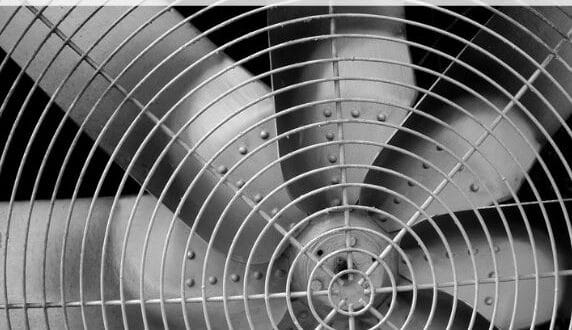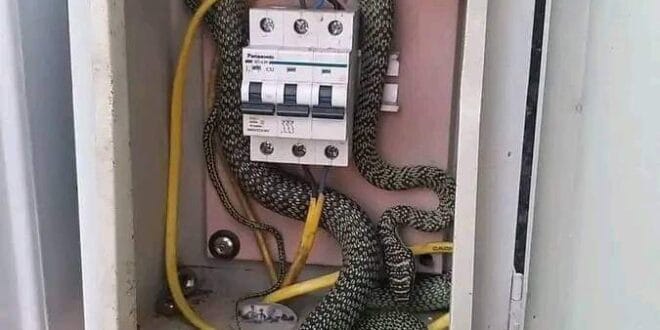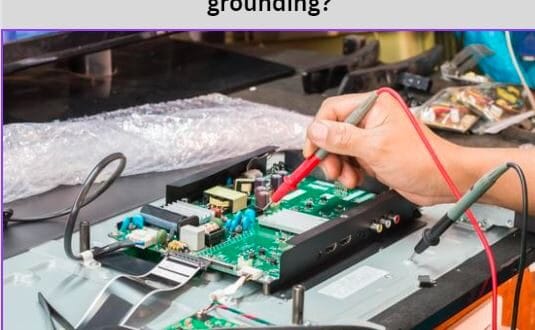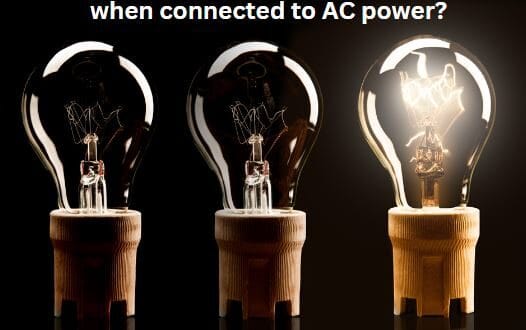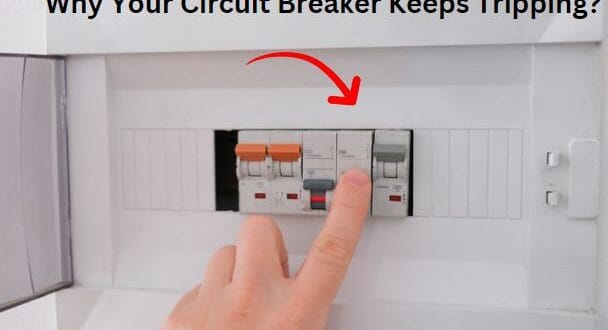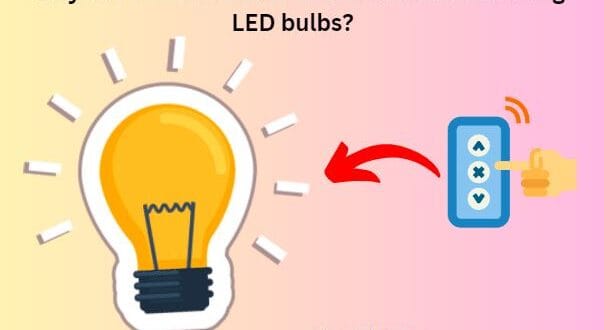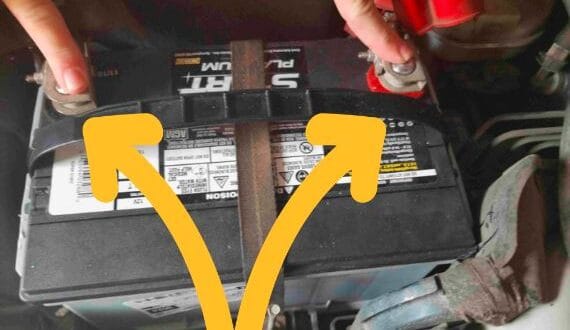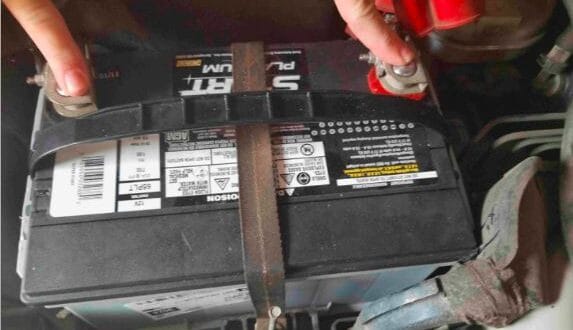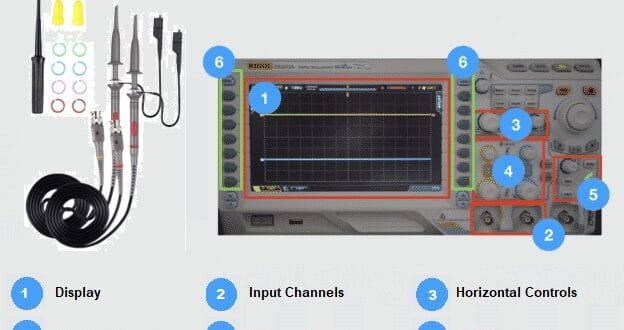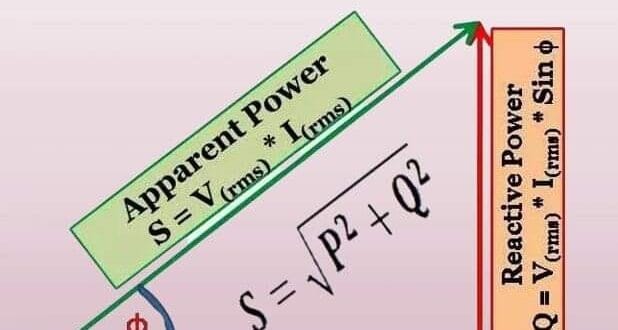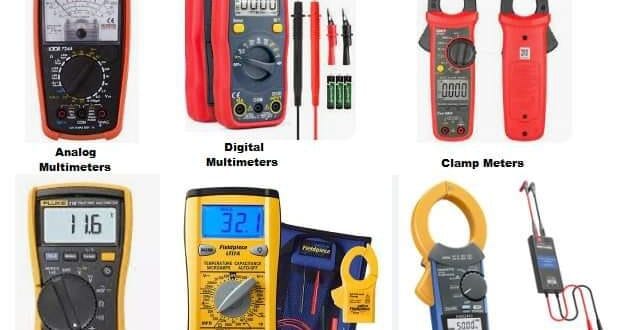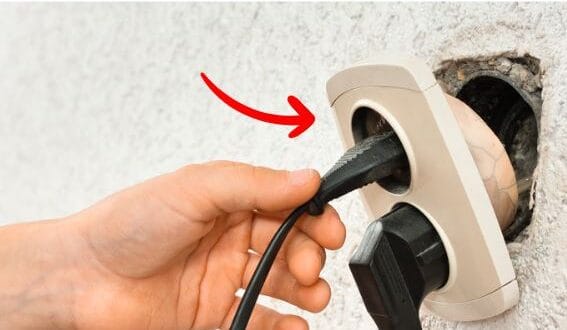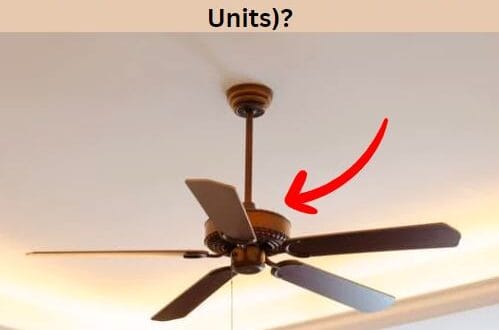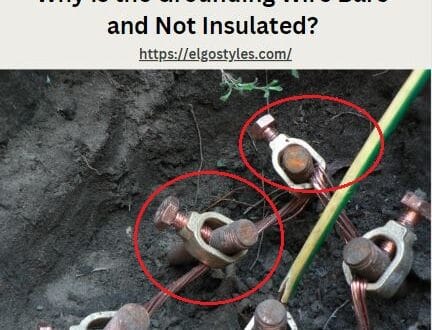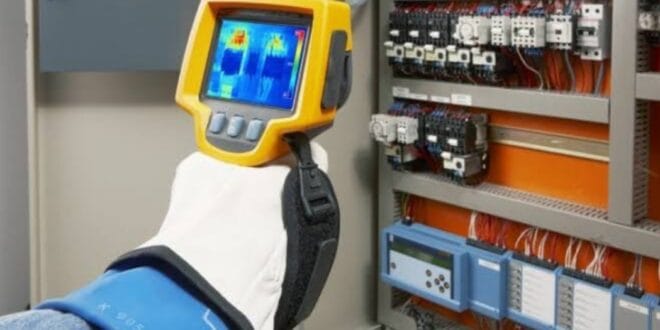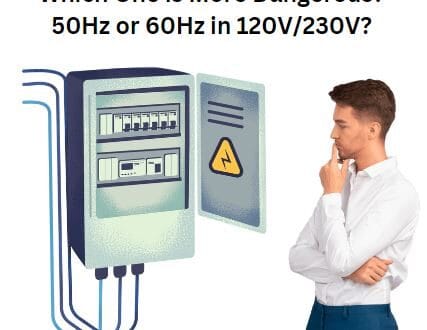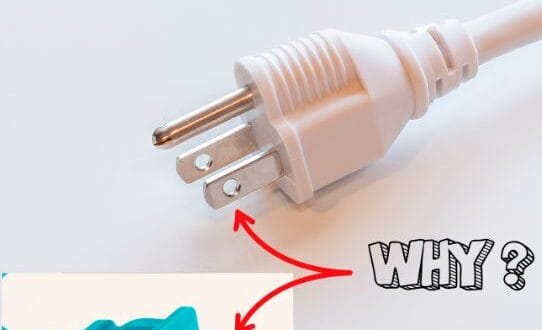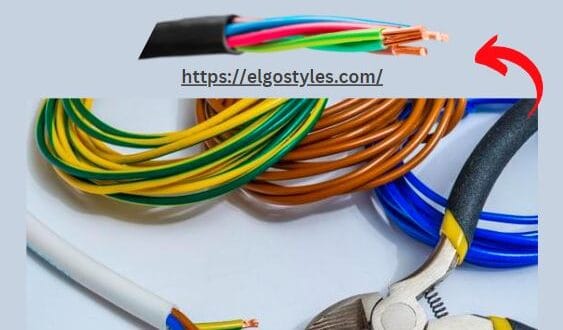July 22, 2025
Electronics
Answer: Capacitors can’t store as much energy as batteries for the same size and weight, and they lose their charge much faster. This makes them impractical for long-term energy storage like batteries are used for. Reasoning: We can’t use big capacitors instead of batteries to store energy primarily because capacitors …
Read More »
July 9, 2025
Electrical
Why is the Long Prong Neutral Instead of the Narrow Prong? Answer The long prong is neutral to ensure electrical safety — it helps control the return path of electricity and prevents dangerous shocks when unplugging or plugging in devices. Reasoning In North American electrical systems, the wide (long) prong …
Read More »
July 9, 2025
Electrical, Electronics
What Is a Power Surge: Causes, Effects, and Protection Introduction Electricity powers nearly every aspect of modern life—from lighting homes and charging phones to running computers and appliances. While our electrical systems are typically stable, they are not immune to unexpected spikes in voltage known as power surges. These brief …
Read More »
July 7, 2025
Electrical
Types of Insulators in Electrical Systems Insulators are vital components in electrical systems, playing a crucial role in preventing the unwanted flow of current and ensuring safety, reliability, and efficiency. Their primary function is to support and separate electrical conductors without allowing current to pass through themselves. Insulators are made …
Read More »
June 18, 2025
Electrical
Electrical Machines MCQ (Multiple Choice Questions) 1. Electromagnetic torque in rotating electrical machinery is present when ________ a) Both stator and rotor windings carry current b) Air gap is uniform c) Stator winding alone carries current d) Rotor winding alone carries current View Answer 2. In a rotating electrical machine …
Read More »
March 19, 2025
Electrical
Bambu Labs Launches MakerWorld Cyberbrick: Programmable 3D-Printed Toys Hit Kickstarter In an exciting development for tech enthusiasts and makers alike, Bambu Labs has unveiled its latest innovation: the **MakerWorld Cyberbrick**, a line of programmable, 3D-printed toys now live on Kickstarter. This groundbreaking project aims to blend the worlds of 3D …
Read More »
February 16, 2025
Drones
DJI FLIP All-in-One Vlog Camera Drone Review The DJI Flip is a groundbreaking addition to DJI’s lineup, designed to cater to both novice and experienced drone enthusiasts. This compact, foldable drone combines advanced imaging capabilities with user-friendly features, making it an ideal choice for capturing stunning aerial footage. Also read …
Read More »
February 15, 2025
Drones
DJI Neo, Mini Drone with 4K UHD Camera Review The DJI Neo is a groundbreaking addition to DJI’s lineup, setting new standards in compact aerial videography. Weighing just 135 grams, it’s the lightest and most portable drone DJI has ever produced, making it an ideal companion for content creators and …
Read More »
January 23, 2025
Electronics
Do weather systems affect packaging operations? Answer: Yes, weather systems significantly impact packaging operations by influencing factors such as humidity, temperature, and static electricity, which affect materials and equipment. Reasoning: Weather systems impact packaging operations in various ways: Humidity: High humidity can cause adhesives to lose their bonding strength, weaken …
Read More »
November 8, 2024
Drones
Holy Stone HS360S GPS Drone Review Overview The Holy Stone HS360S is a feature-packed, lightweight drone designed for adults and beginner enthusiasts seeking a versatile and user-friendly aerial experience. With its 4K UHD camera, advanced GPS features, and impressive 10,000-foot control range, the HS360S makes a solid entry into drone flying without …
Read More »
November 7, 2024
Drones
DJI Mini 3 Pro (DJI RC) Technical Review DJI Mini 3 Fly More Combo (DJI RC) – Powerful and Portable Drone for Stunning Aerial Photography The DJI Mini 3 Fly More Combo (DJI RC) is a compact, high-performance drone packed with advanced features, making it an excellent choice for both …
Read More »
November 5, 2024
Drones
DJI Mini 4 Pro RC 2 – A Technical Review for the Serious Drone Enthusiast If you’re looking to step up your aerial photography and video game, the DJI Mini 4 Pro Fly More Combo Plus with DJI RC 2 is an impressive choice. This compact yet highly capable drone …
Read More »
September 16, 2024
Electrical
Lightning: AC or DC? Lightning: AC or DC?—The Full Explanation When lightning strikes, it releases an astonishing amount of electrical energy in an instant. From a scientific and engineering perspective, understanding the nature of this energy can help us design better protection systems, from surge protectors to lightning rods. The …
Read More »
September 16, 2024
Electrical
Why Do My Outlets Spark When I Plug Something In? It happens in a flash. You plug in your phone charger or your hair dryer, and suddenly, a little spark appears from the outlet. It might make you pause and wonder: Is this normal, or is something wrong? Here’s everything …
Read More »
September 15, 2024
Electrical
Why Don’t Birds Get Electrocuted on Power Lines? Birds on power lines are a common sight. As you watch them sitting high above the ground, seemingly without a care in the world, you may wonder—why don’t they get electrocuted? After all, those power lines carry thousands of volts of electricity. …
Read More »
September 11, 2024
Products
Metabo HPT 36V MultiVolt™ Cordless Rebar Bender/Cutter Review for Electrical Field The Metabo HPT 36V MultiVolt™ Cordless Rebar Bender/Cutter (VB3616DA) is an essential tool for professionals working in the electrical field, especially for projects requiring reinforced concrete structures to support heavy-duty electrical equipment. This industry-first cordless bender and cutter delivers …
Read More »
September 9, 2024
Electrical
Can a Power Surge Destroy Your Devices? Everything You Need to Know Have you ever experienced flickering lights during a storm or watched in horror as your electronics suddenly shut down? That sudden loss of power may be the result of a power surge, and if you’re not careful, it …
Read More »
September 9, 2024
News
YouTubers Break Guinness World Record with Fully Functional Giant iPhone In an unprecedented feat of engineering, popular tech YouTubers Arun Maini, known as Mrwhosetheboss, and Matthew Perks, the mind behind DIYPerks, have officially constructed the world’s largest iPhone 15 Pro Max, standing at an astounding 6.74 feet tall. This creation, …
Read More »
September 7, 2024
News
Electrocuted Birds Falling from Power Lines Are Igniting Wildfires Across the U.S. In a surprising and alarming phenomenon, electrocuted birds are causing wildfires across the United States, with a recent report identifying them as a contributing factor in at least 44 wildfires between 2014 and 2018. These avian-related fires have …
Read More »
September 7, 2024
News
China’s Shenlong Space Plane Lands After 268 Days, Marking Major Milestone China’s secretive space plane, Shenlong, has returned to Earth safely after 268 days in orbit, marking its third successful mission. The reusable experimental spacecraft landed in the Gobi Desert on September 5, 2024. Its mission, launched aboard a Long …
Read More »
August 30, 2024
News
Neuralink’s First Patient Names His Brain Implant ‘Eve’ and Uses It to Learn French and Japanese The Future of Mind-Controlled Technology Is Here!” Neuralink’s first patient, Noland Arbaugh, has taken a significant step forward in the evolving world of brain-implant technology. Seven months after receiving the brain chip, Arbaugh has …
Read More »
August 30, 2024
News
Apple to Surpass Nvidia as Top AI Stock in 2025, Says Citi Apple is poised to overtake Nvidia as the leading AI stock by 2025, according to a new report from Citi. The bank predicts that the AI trade, which has been dominated by infrastructure such as chips and servers, …
Read More »
August 30, 2024
News
Apple and Nvidia Eye Major Investments in OpenAI, Valuing AI Leader at $100 Billion Apple and Nvidia are reportedly in discussions to become significant investors in OpenAI, the creator of ChatGPT, as part of a new fundraising round that could value the AI powerhouse at $100 billion. According to sources …
Read More »
August 29, 2024
News
OpenAI in Talks for Funding Round Valuing It Above $100 Billion San Francisco-based artificial intelligence pioneer OpenAI is reportedly in discussions to raise several billion dollars in a new funding round that would catapult the company’s valuation above $100 billion. This marks a significant leap from its previous valuation of …
Read More »
August 28, 2024
Electrical, News
Microsoft to Buy Solar Power From Singapore Public Buildings Singapore – In a significant move towards achieving its ambitious climate goals, Microsoft has signed a 20-year agreement with EDP Renewables (EDPR) to purchase 100% of the solar energy generated from the SolarNova 8 project in Singapore. This landmark deal is …
Read More »
August 27, 2024
News
UNDP Deploys Innovative 3D Printing Technology to Address Housing Crisis in Colombia In a groundbreaking effort to combat Colombia’s severe housing deficit, the United Nations Development Program (UNDP) has acquired a revolutionary 3D printer from WASP (World’s Advanced Saving Project) to construct homes using locally sourced materials. This initiative marks …
Read More »
August 26, 2024
News
Biocomputers’ Made of Human Brain Cells Now Available for Rent at $500/Month Priced at $500 per month, these organoids can last up to 100 days and are currently being used by select universities to advance AI research and explore new training methods. In a groundbreaking development, FinalSpark, a Swiss technology …
Read More »
August 26, 2024
News
Autonomous Robot Patrols Atlanta’s Crime-Ridden Streets Amid Safety Concerns Atlanta’s Old Fourth Ward, particularly the Boulevard Street area, has recently become the focus of public safety concerns due to a significant increase in violent crimes over the past seven months. In response, an autonomous surveillance robot, developed by Knightscope, has …
Read More »
August 25, 2024
News
Elon Musk’s Neuralink Hits Milestone with Successful Second Implant Trial for Paralyzed Patients Elon Musk’s brain-computer interface company, Neuralink, has achieved a significant milestone with its second successful implant in a human participant. The latest patient, identified as Alex, has experienced positive results, with no signs of the thread retraction …
Read More »
August 25, 2024
News
Astronauts Butch Wilmore and Sunita Williams are stuck in spaceX until February 2025 CAPE CANAVERAL, Fla. — In an unexpected turn of events, NASA astronauts Butch Wilmore and Sunita Williams are facing an extended stay on the International Space Station (ISS) after their return mission was postponed until February 2025. …
Read More »
August 24, 2024
News
Google Introduces New AI Tool to Help YouTube Users Recover Hacked Accounts In response to the increasing number of social media hacks, Google-owned YouTube has introduced a new artificial intelligence (AI) tool to help users recover their hacked accounts. The AI-powered chatbot, which is available through the YouTube Help Center, …
Read More »
August 24, 2024
News
Your Smartwatch is Lying You About Your Health Smartwatches have become a staple for many, offering a range of health-tracking features from heart rate monitoring to sleep analysis. However, a recent review study highlights the potential inaccuracies in the data provided by these devices, raising concerns about their reliability. “Smartwatches …
Read More »
August 23, 2024
News
Researchers Develop Revolutionary Smart Fabric: Generating Electricity from Body Heat In a groundbreaking development, researchers at the University of Waterloo have unveiled a new type of fabric capable of generating electricity from body heat and sunlight, marking a significant leap forward in smart textile technology. This innovative fabric has the …
Read More »
August 23, 2024
News
Meet RIA: Robot with Human-Like Expressions Pretends to Be a Patient to train doctors A new era of medical training has begun at the UC San Diego Division of Extended Studies, where an AI-powered humanoid robot named RIA is transforming the way doctors prepare for real-world patient care. Developed by …
Read More »
August 23, 2024
News
South Korea Records First-Ever Robot ‘Suicide’ as Overworked Droid Throws Itself Down Stairs In an unprecedented and tragic event, a robot employed by the Gumi City Council in South Korea is believed to have committed the first recorded instance of robot suicide. The robot, known as the “Robot Supervisor,” was …
Read More »
July 30, 2024
Products
Top 15 Essential Electrician Tools Whether you’re a seasoned electrician or just starting out, having the right tools is crucial for efficiency and safety. Here’s a comprehensive guide to the top 15 essential electrician tools, along with their pros and cons, to help you make informed purchases. As an Amazon …
Read More »
July 11, 2024
Electrical
What is the white smoke that trails behind an airplane’s wing tips when it is landing? Answer: The white smoke trailing behind an airplane’s wing tips when it is landing is condensation of water vapor due to changes in air pressure. Reasoning: The white smoke seen trailing behind an airplane’s …
Read More »
July 4, 2024
Electrical, Electronics
Wiha 32092 Slotted and Phillips Insulated Screwdriver Set, 1000 Volt Review The Wiha 32092 Slotted and Phillips Insulated Screwdriver Set is a robust and reliable choice for any professional electrician or DIY enthusiast. Here’s an in-depth review of this versatile toolset: Brand: Wiha Wiha is renowned for its high-quality tools, …
Read More »
July 3, 2024
Electrical
Do Solar Panels Increase the Temperature of the Earth? Answer No, solar panels do not significantly increase the temperature of the Earth. Reasoning Solar panels convert sunlight into electricity, reducing the need for fossil fuels and thereby lowering greenhouse gas emissions. While they absorb sunlight, their surface does not significantly …
Read More »
July 2, 2024
Electrical
TIEKJOT Electric Wall Groove Cutting Machine/ Chaser Concrete Cutter Brand: TIEKJOT Color: Red Blade Material: High-Speed Steel Surface Recommendation: Wall Power Source: Corded Electric Overview The TIEKJOT Electric Wall Groove Cutting Machine is a robust and efficient tool designed for professionals needing precise and clean cuts in concrete, brick, marble, …
Read More »
June 28, 2024
Electronics
Permanent-Magnet Synchronous Motors (PMSM) Introduction Permanent-Magnet Synchronous Motors (PMSMs) are a type of synchronous motor that uses permanent magnets embedded in the steel rotor to create a constant magnetic field. The stator, typically made of laminated steel with windings, produces a rotating magnetic field when powered by an alternating current …
Read More »
June 24, 2024
Electrical
Electrical Safety Regulations and Standards Introduction Electrical safety regulations and standards are an essential aspect of workplace safety, and adherence to these standards can prevent workplace accidents and injuries. In the United States, organizations such as OSHA and NFPA have established electrical safety regulations and standards that companies must follow …
Read More »
June 24, 2024
Electrical
Answer: Yes, ground typically refers to a reference point with zero voltage. Reasoning: In electrical engineering, ground is often used as a reference point for voltage measurements. It’s conventionally assumed to have zero voltage because it’s connected to the Earth, which acts as a large reservoir of charge. By connecting …
Read More »
June 24, 2024
Electrical
Mistakes to avoid when installing solar panels Harnessing solar energy through installations has become increasingly popular as the world shifts towards sustainable energy sources. However, despite its growing popularity, solar installations can still encounter numerous pitfalls, leading to inefficiencies, increased costs, or even safety hazards. Understanding and avoiding these common …
Read More »
June 22, 2024
Electronics
What happens to a Capacitor at high voltage? Answer: At high voltage, a capacitor can experience dielectric breakdown, leading to insulation failure and potential damage to the capacitor. Reasoning: When a capacitor is exposed to high voltage, the electric field across the dielectric material increases. If the voltage exceeds the …
Read More »
June 21, 2024
Electrical
Does increasing the number of fan blades increase the output airflow? Answer: Increasing the number of fan blades does not necessarily increase the output airflow. The airflow depends on various factors including blade design, pitch, motor power, and overall fan efficiency. Reasoning: While adding more blades might seem like …
Read More »
June 20, 2024
Electronics
Do solar panels use light or heat? Answer: Solar panels use light, not heat, to generate electricity. Reasoning: Solar panels, specifically photovoltaic (PV) panels, convert sunlight (light energy) directly into electricity using the photovoltaic effect. When sunlight hits the semiconductor material in the solar cells, it excites electrons, creating an …
Read More »
June 20, 2024
Electrical
How can snakes accidentally cause a short circuit or the breakdown of power system? Answer Snakes can cause short circuits or power system breakdowns by entering electrical substations or transformers and bridging conductive components, leading to electrical faults. Reasoning Snakes often seek warmth and shelter in electrical substations and transformers. …
Read More »
June 12, 2024
Jobs
Electrical Engineer | The Resolute Group Ltd | Electrical Jobs Company: The Resolute Group Ltd Job Title/ Position: Electrical Engineer Location: Düsseldorf, North Rhine-Westphalia, Germany Employment Type: On-site, Full-time Industry: Staffing and Recruiting Apply Now Job Description Overview: An excellent opportunity for a junior Electrical Engineer to be a key …
Read More »
June 11, 2024
Electronics
What will happen if I wire 100 car batteries wired in parallel? Answer Wiring 100 car batteries in parallel increases the total current capacity but maintains the same voltage. This setup can produce very high current, but poses significant safety risks including overheating, short circuits, and potential explosions. Reasoning When …
Read More »
June 7, 2024
Electronics
Contrails vs. Chemtrails: Understanding the Differences The sky is often crisscrossed with white streaks left by high-flying aircraft. These trails, while familiar to many, have sparked both scientific explanations and conspiracy theories. The terms “contrails” and “chemtrails” refer to these phenomena, but they describe vastly different concepts. Here, we explore …
Read More »
June 5, 2024
Electronics
How Do Electric Lighters Work? Answer: Electric lighters work by using an electric arc or a heating element to ignite materials, instead of a traditional flame. When activated, electricity flows through electrodes, creating a high-voltage arc or heating a coil, which generates enough heat to ignite the target material. Reasoning: …
Read More »
June 5, 2024
Electronics
How do AI-based virtuals like Alexa and Siri work? Answer AI-based virtual assistants like Alexa and Siri work by using voice recognition, natural language processing (NLP), and machine learning to understand and respond to user commands. Reasoning AI-based virtual assistants such as Alexa and Siri function through a combination of …
Read More »
June 5, 2024
Electronics
How Do Inductive Cooktops Work? Answer Inductive cooktops work by using electromagnetic induction to heat cookware directly. When the cooktop is turned on, an electric current passes through a coil under the cooking surface, creating a magnetic field. This magnetic field induces an electric current in the ferrous (iron-containing) cookware, …
Read More »
June 5, 2024
Electronics
How do noise-cancelling headphones work? Answer Noise-cancelling headphones use active noise control to reduce unwanted ambient sounds by producing sound waves that are the exact negative of the external noise, thereby canceling it out. Reasoning Noise-cancelling headphones work through a process called active noise control (ANC). They have built-in microphones …
Read More »
June 3, 2024
Electronics
Answer A digital clock keeps time using a quartz crystal oscillator, which generates precise frequency signals to accurately measure and display the passage of time. Reasoning Digital clocks keep time using an electronic oscillator regulated by a quartz crystal. Quartz crystals have piezoelectric properties, meaning they generate a consistent electrical …
Read More »
June 3, 2024
Electronics
How does a GPS device determine your location? Answer: A GPS device determines your location by triangulating signals from multiple satellites in the Global Positioning System network. Reasoning A GPS device determines your location through a process called trilateration. Here’s a detailed explanation: Satellite Signals: The GPS device receives signals …
Read More »
June 3, 2024
Electronics
How does a wearable fitness tracker measure steps? Answer: A wearable fitness tracker measures steps using an accelerometer to detect motion and analyze patterns to identify steps. Reasoning: How does a wearable fitness tracker measure steps? A wearable fitness tracker typically uses a built-in accelerometer to measure steps. The accelerometer …
Read More »
June 2, 2024
Electrical
Why do batteries degrade over time? Answer: Batteries degrade over time due to chemical reactions that reduce their ability to hold a charge, such as the formation of solid electrolyte interphase (SEI), loss of active material, and growth of dendrites. Complete reasoning: Batteries degrade over time because of several interconnected …
Read More »
June 2, 2024
Electronics
Understanding Hybrid Potentiometers Introduction Potentiometers, commonly known as “pots,” are fundamental components in electronic circuits used to measure and adjust electrical resistance. Their primary role involves controlling voltage levels and current flow in various devices, from simple volume controls in audio equipment to complex industrial machinery. As technology advances, so …
Read More »
June 2, 2024
Electronics
Answer: Electronic devices heat up due to electrical resistance in components, which converts electrical energy into heat, and because of the work performed by the device. Reasoning: Electronic devices heat up primarily because of electrical resistance in their components. When electrical current flows through a device, the resistance causes some …
Read More »
June 2, 2024
Electronics
Why do some electronic devices need grounding? Answer: Grounding electronic devices provides a safe path for excess electrical current to disperse into the earth, protecting users from electric shock and preventing damage to the device. Reasoning: Some electronic devices need grounding to ensure safety and proper functioning. Grounding provides a …
Read More »
June 2, 2024
Electrical
Why Most Airplanes Are Painted White? Answer: Most airplanes are painted white because white paint reflects sunlight, reducing heat absorption and helping maintain a cooler temperature. It also shows cracks, dents, and other damages more clearly, ensuring better safety and maintenance. Complete Reasoning: Thermal Efficiency: White paint reflects most of …
Read More »
June 2, 2024
Electrical
Why Some Phone Chargers Are Faster Than Others? Answer Some phone chargers are faster than others due to differences in power output, charging technology, and device compatibility. Reasoning Power Output: Chargers with higher wattage (measured in watts, W) deliver more power to the device, resulting in faster charging. For example, …
Read More »
May 30, 2024
Electrical
How do wireless chargers work? Answer Wireless chargers work by using electromagnetic induction to transfer energy from the charger to a compatible device without the need for physical connectors. Reasoning Wireless chargers operate through a process called electromagnetic induction. Inside the charger, there is a coil that generates an alternating …
Read More »
May 29, 2024
Electronics
What happens when you’re on a plane and don’t put your phone on airplane mode? Answer When you don’t put your phone on airplane mode while on a plane, it can cause interference with the aircraft’s communication and navigation systems, potentially affecting flight safety. Reasoning When a phone is not …
Read More »
May 27, 2024
Electrical
Why do planes have white smoke? Answer Planes have white smoke, called contrails, because of the condensation of water vapor in the exhaust of jet engines when it mixes with cold air at high altitudes. Reasoning The white smoke seen trailing behind planes is known as contrails, short for condensation …
Read More »
May 25, 2024
Electrical
Why cant the A/C go lower than 16C° if it can keep cooling the room? Answer An air conditioner cannot go lower than 16°C due to design limitations, energy efficiency, and the risk of freezing the internal components. Complete Reasoning Air conditioners have a lower limit on the temperature they …
Read More »
April 17, 2024
Electrical
Answer: Incandescent lamps blink when connected to AC power due to the alternating current causing the filament to heat and cool rapidly, leading to visible flickering. Reasoning: Incandescent lamps contain a filament that emits light when heated by an electric current. When connected to AC power, the current alternates direction …
Read More »
April 15, 2024
Electrical
Why Your Circuit Breaker Keeps Tripping? Introduction: As an electrical support engineer, one of the most common issues you’ll encounter in residential and commercial settings is circuit breaker tripping. It’s a recurring frustration for many homeowners and business owners alike. Understanding why your circuit breaker keeps tripping is essential for …
Read More »
April 14, 2024
Electrical
How To Tell If A Circuit Breaker Is Bad? Introduction: In any electrical system, circuit breakers serve as crucial guardians, protecting circuits from overloads and potential hazards. However, like any component, they can degrade over time, potentially leading to malfunction. As electrical support engineers, it’s essential to discern the signs …
Read More »
April 14, 2024
Electrical
Answer: Yes, you can use dimmer switches with LED bulbs, but it’s crucial to ensure compatibility for optimal performance. Reasoning: Using dimmer switches with LED bulbs is feasible, but compatibility is essential. Traditional dimmer switches may not be suitable for LEDs due to differences in technology. LED bulbs require dimmers …
Read More »
April 14, 2024
Electrical
Answer: Megger is preferred over a multimeter for insulation testing because it applies a higher voltage, typically 500V or more, which is necessary to accurately assess the insulation resistance and detect potential faults. Reasoning: Insulation testing requires the application of a higher voltage to accurately measure the resistance of insulation …
Read More »
April 12, 2024
Electronics
Answer: Touching the negative and positive sides of a battery together creates a short circuit, allowing a large current to flow between them. This can lead to rapid discharge of the battery, generation of heat, and potential damage to the battery or surrounding objects. Reasoning: Short Circuit: When the negative …
Read More »
April 12, 2024
Electronics
Answer: If you touch both terminals of a 12V battery, you create a closed circuit, allowing current to flow through your body, potentially causing electric shock, burns, or even death. Reasoning: When you touch both terminals of a 12V battery, you complete the circuit, allowing electricity to flow through your …
Read More »
April 12, 2024
Electrical
Answer: Yes, sitting inside a car during a lightning strike is generally safe due to the Faraday cage effect, where the metal frame of the car conducts electricity around the occupants, keeping them safe from harm. Reasoning: Cars are designed with metal frames that act as Faraday cages, diverting lightning’s …
Read More »
April 11, 2024
Electrical
Answer: Pure water does not conduct electricity because it lacks ions necessary for the flow of electrical current. To make it conducting, we can add impurities or electrolytes like salt. Reasoning: Pure water, consisting only of H2O molecules, lacks ions necessary for the conduction of electricity. In its purest form, …
Read More »
April 8, 2024
Electronics
Potentiometer Circuit Diagram and Working Introduction Potentiometers, also known as variable resistors, are a fundamental component in electronic circuits. They are used to control the flow of electrical current in a circuit by altering the resistance of the circuit. Potentiometers are widely used in various applications, such as volume controls …
Read More »
April 6, 2024
Electrical
Differences Between MCB, MCCB, ELCB, and RCCB Introduction: In the realm of electrical engineering and circuit protection, the acronyms MCB, MCCB, ELCB, and RCCB often arise. Understanding the distinctions between these devices is crucial for ensuring the safety and efficiency of electrical systems. In this article, we’ll delve into the …
Read More »
April 3, 2024
Electrical
Efficient Voltage Control Strategies for Modern Power Systems Introduction Voltage control is a crucial aspect of power system operation and stability. In a power system, maintaining the voltage within a specified range is essential for ensuring efficient power delivery and preventing damage to equipment. Voltage control becomes even more critical …
Read More »
April 3, 2024
Electronics
Oscilloscope Guide Introduction Definition and purpose of an oscilloscope An oscilloscope, often referred to as an “scope” or “o-scope,” is an electronic test instrument used to visualize and analyze electrical waveforms. It displays voltage signals in the time domain, allowing engineers and technicians to observe the characteristics of various electronic …
Read More »
April 3, 2024
Electrical
Electrical Power – Its Types and Units Introduction Electrical power is a fundamental concept that plays a pivotal role in modern society. From lighting our homes to powering vast industries, electrical power has become an indispensable part of our daily lives. In this article, we will explore what electrical power …
Read More »
April 2, 2024
Electrical
Electrical Distribution Substation: The Nerve Center of Power Delivery In the intricate web of electrical infrastructure, distribution substations play a pivotal role, serving as the critical juncture where high-voltage electricity is transformed and distributed to end-users at manageable voltages. These often inconspicuous yet indispensable facilities are the backbone of modern …
Read More »
April 2, 2024
Electronics
Multimeter Types and Their Applications Introduction Multimeters are indispensable tools used in various fields that involve electrical measurements. They play a vital role in diagnosing electrical problems, troubleshooting circuits, and ensuring accurate measurements of voltage, current, resistance, and other electrical parameters. Understanding the different types of multimeters and their applications …
Read More »
April 1, 2024
Electrical
Answer: The difference in voltage (110V vs. 220V) across countries is primarily due to historical, economic, and technical factors. Reasoning: The choice between 110V and 220V systems largely depends on historical development, economic considerations, and technical requirements. Countries like the United States and Japan typically use 110V due to early …
Read More »
April 1, 2024
Electrical
Answer: We use 400Hz power supply in aircraft for lighter, more efficient electrical systems, enabling smaller transformers and lighter cables. Reasoning: 400Hz power supply is utilized in aircraft due to several factors: Weight reduction: Higher frequency allows for smaller transformers and lighter cables, crucial for aircraft weight management. Efficiency: Electrical …
Read More »
April 1, 2024
Electrical
Answer: No, properly installed and maintained solar panels do not pose a direct electrocution risk to individuals. Reasoning: Solar panels generate electricity from sunlight through photovoltaic cells. The direct current (DC) produced by solar panels is typically low voltage, which is generally not enough to cause electrocution. However, improper installation, …
Read More »
April 1, 2024
Electrical
Answer: Yes, a ceiling fan running at a slower speed consumes less power (electricity units). Reasoning: Ceiling fans consume power based on their speed settings. Slower speeds require less energy to maintain, resulting in lower power consumption. This is because the fan’s motor operates at a reduced rate, resulting in …
Read More »
April 1, 2024
Electrical
Answer: Wearing anything metallic during an MRI can pose serious risks including tissue damage, burns, and even death due to the powerful magnetic fields of the MRI machine attracting metal objects. Reasoning: MRI machines use powerful magnets to generate images of the body’s internal structures. Metallic objects can become projectiles, …
Read More »
March 31, 2024
Electrical
Answer: Umbrellas are not allowed during substation visits due to the risk of electrical conductivity, which can lead to serious injury or even death. Reasoning: Umbrellas, typically made of metal or partially composed of metal, pose a significant risk in substations where there are high-voltage electrical equipment and conductors. The …
Read More »
March 30, 2024
Electrical
Answer: No, the power of a “zero-watt” bulb is not literally zero watts. Instead, it refers to a very low power consumption. These bulbs typically consume minimal energy, often less than a watt, hence the term “zero-watt.” However, they still have a small power rating, typically ranging from 0.5 to …
Read More »
March 30, 2024
Electrical
Answer: A Buchholz relay is a safety device used in oil-filled power transformers and reactors to detect faults such as gas accumulation, oil leakage, or overheating. It protects these equipment by triggering alarms or disconnecting them from the power supply in case of a fault. Reasoning: A Buchholz relay is …
Read More »
March 30, 2024
Electrical
Answer: Outlets and receptacles in hospitals are often installed upside down for safety reasons. Reasoning: In hospitals, upside-down outlets are a safety measure to prevent accidental disconnection of medical equipment. Placing the ground pin on top reduces the risk of objects falling into the sockets and causing a short circuit. …
Read More »
March 29, 2024
Electrical
Answer: The grounding wire is bare and not insulated to ensure effective dissipation of electrical charges into the ground, preventing electrical hazards. Reasoning: The grounding wire serves as a safety measure in electrical systems. It’s designed to provide a path of least resistance for electrical current to flow into the …
Read More »
March 29, 2024
Electrical
Electrical Inspections And Audits Introduction Electrical inspections and audits are crucial for ensuring the safety, reliability, and efficiency of electrical systems. They involve a comprehensive evaluation of electrical components, equipment, and procedures to identify potential hazards and ensure compliance with regulations and standards. In this context, it is important to …
Read More »
March 28, 2024
Electrical
Answer: Neither 50Hz nor 60Hz frequency in 120V/230V electricity is inherently more dangerous. The danger primarily depends on factors like current, duration of exposure, and individual susceptibility to electric shock. Reasoning: The danger of electric shock is not solely determined by frequency but also by other factors such as current, …
Read More »
March 28, 2024
Electronics
Answer: Connecting a polar capacitor the wrong way can lead to reverse voltage, causing the capacitor to fail catastrophically, potentially resulting in leakage, overheating, and even explosion. Reasoning: Polar capacitors, such as electrolytic capacitors, are designed to handle voltage in one direction. Connecting them the wrong way can subject them …
Read More »
March 28, 2024
Electrical
Answer: Electrical prongs have holes in them to enhance safety by allowing the prongs to securely grip the outlet’s contacts and create a stable electrical connection. Reasoning: The holes in electrical prongs serve multiple purposes. Firstly, they allow for the insertion of small metal tabs within the outlet’s sockets. These …
Read More »
March 28, 2024
Electronics
Answer: A bicycle stays upright due to the gyroscopic effect of the wheels, the bike’s steering mechanism, and the rider’s balance. Reasoning: A bicycle stays upright through a combination of factors. Firstly, the rotating wheels create gyroscopic forces that resist changes in orientation, helping the bike stay upright. Additionally, the …
Read More »
March 27, 2024
Electrical
Answer: The live wire is called the phase wire because it carries the alternating current (AC) that alternates in phase with the voltage, providing power to electrical devices. Reasoning: The term “live wire” refers to the wire that carries the alternating current (AC) from the power source to electrical devices. …
Read More »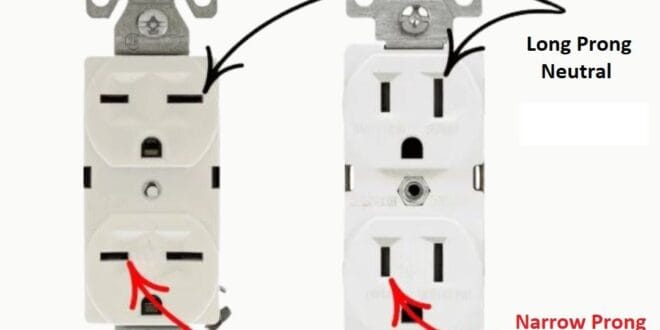
 Electrical Engineering World Wiring a Brighter Tomorrow!
Electrical Engineering World Wiring a Brighter Tomorrow!


